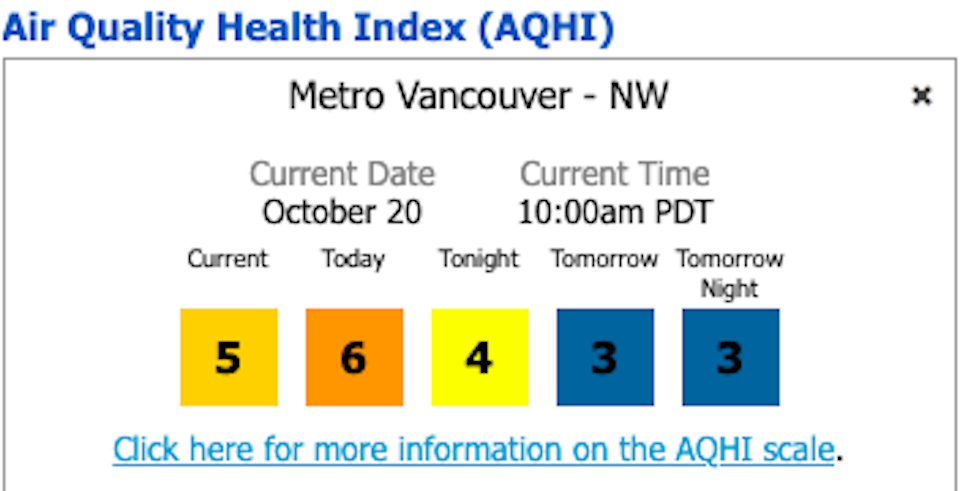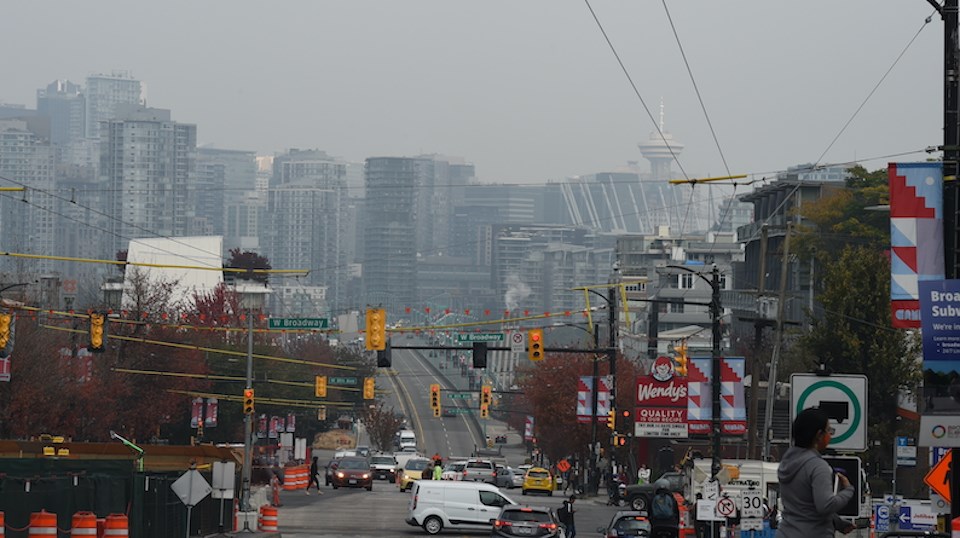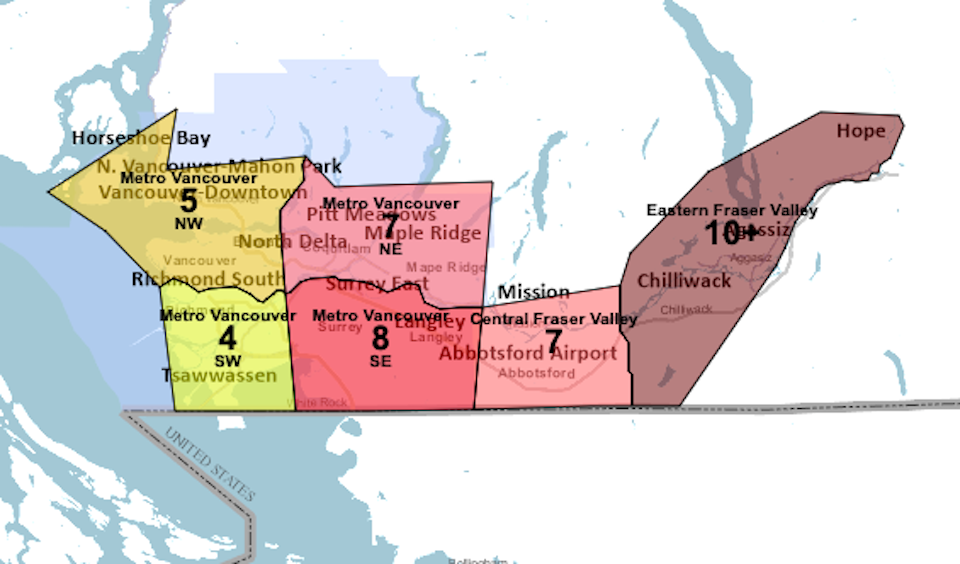An air quality map shows all of the Lower Mainland has varying degrees of poor air quality on Thursday (Oct. 20) - and the air isn't expected to improve until Friday.
Metro Vancouver is continuing an air quality advisory for the Lower Mainland that was first issued on Oct. 14 due to smoke from wildfires burning in B.C. and south of the border.
The advisory was issued because of high concentrations of fine particulate matter in the atmosphere caused by wildfires burning southeast of Chilliwack (near Chilliwack Lake), near Hope, near Harrison Lake, and in Washington.
The air quality has worsened since the weekend, however. As of Saturday afternoon, for example, the map showed that many parts of the region had a "low health risk."
As of midday Thursday, air across the Lower Mainland poses at least a "moderate" to a "very high" health risk. Smoke concentrations may vary widely across the region as winds and temperatures change, and as wildfire behaviour changes.
Thankfully, the poor air quality is expected to improve Friday as the Metro Vancouver forecast includes periods of rain.
- Related: 'Triple-dip, three-peat, three-bean salad': Will La Niña cause severe weather in Metro Vancouver?
Environment Canada meteorologist Alyssa Charbonneau told Vancouver Is Awesome that locals will feel like they've thrown "right from summer into the middle fall." In fact, some of B.C.'s highways are expected to see some snowfall over the weekend.
"Now is the time to sort of look around and clear your drains and gutters. If you're travelling, take a look at the forecast over those highways because it might be a big surprise," she noted


Metro Vancouver weather forecast includes an air quality advisory
The smoke has left Vancouver with some of the worst air in the world. On Oct. 17 it was estimated breathing Vancouver's air for a day was akin to smoking five cigarettes.
As of noon on Thursday, Vancouver had the fourth-worst air quality of any city in the world (165 on the US Air Quality Index).
Fine particulate matter, also known as PM2.5, refers to airborne solid or liquid droplets with a diameter of 2.5 micrometres or less. PM2.5 can easily penetrate indoors because of its small size. You should refrain from outdoor activity during the air quality advisory, particularly if breathing feels uncomfortable.
"Exposure to PM2.5 is particularly a concern for people with underlying conditions such as lung disease, heart disease, chronic obstructive pulmonary disease (COPD), asthma and/or diabetes; individuals with respiratory infections; pregnant women and infants; children; older adults; and outdoor workers (e.g. construction and agricultural workers). Individuals who are socially marginalized may also be at elevated risk (e.g. people who are experiencing homelessness or are underhoused)," according to Metro Vancouver.

If you are impacted by the smoke: keep windows closed, run a portable HEPA air cleaner, or visit a public building with air filtration.
If you are experiencing symptoms such as chest discomfort, shortness of breath, coughing or wheezing, seek prompt medical attention. Call 911 in case of an emergency.
With files from Brendan Kergin.



